Acne
At Rencic Dermatology, your skin is our priority. Whether you're experiencing acne at 13, 23, or 53, if you are struggling with acne, schedule an appointment with a trusted Rencic Dermatology provider for a unique treatment plan catered to the needs of your skin. Start your journey to healthy skin!
Examples of Acne
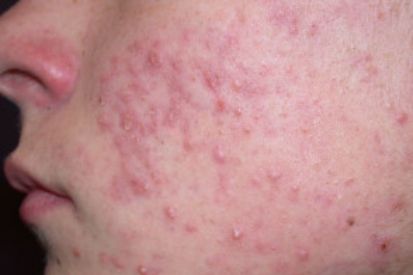
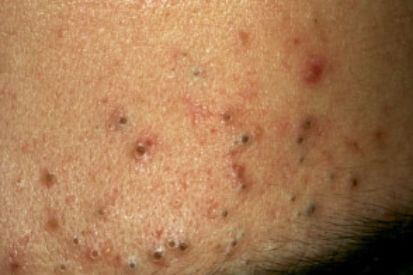
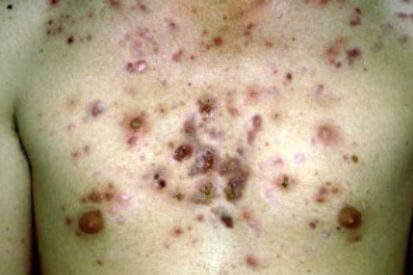
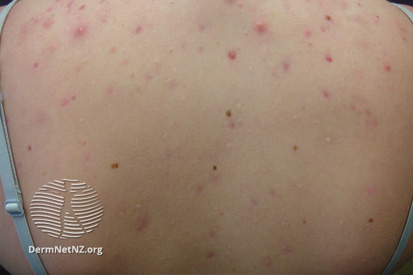
What are the Symptoms of Acne?
- Acne can appear on the face, neck, chest, back, and upper arms.
- Acne symptoms can vary widely, both in the severity of blemishes and the areas affected.
- Some people may get a few blemishes such as pimples, whiteheads, or blackheads.
- More severe blemishes include inflammatory cysts that contain pus or other fluid, and nodules, or firm lesions under the skin.
- These can all occur in localized areas or in areas on the face, back, chest, neck, shoulders, upper arms, and buttocks.
Causes of Acne
- Hormonal Fluctuations: Hormonal changes, especially during puberty, menstruation, and pregnancy, can stimulate acne.
- Bacterial Infection: When hair follicles become clogged with excess oil and dead skin cells, bacteria multiply, triggering inflammation.
- Diet: Some studies suggest that certain foods may influence acne development.
- Medications: Certain medications can contribute to acne development.
- Stress: Stress doesn't directly cause acne, but it can exacerbate existing conditions.
Acne Prevention
For persistent issues, consult with your dermatologist for personalized medical-grade guidance. Working with a skin expert can help you create a foundation and routine for clear, healthy skin for your lifetime skin journey.
Acne FAQs
Over-the-counter acne products typically contain ingredients like benzoyl peroxide, salicylic acid, or alpha hydroxy acids. These products can be effective for mild acne. Prescription treatments, on the other hand, may include stronger formulations of these ingredients or other medications such as topical or oral antibiotics, retinoids, or hormonal therapies. Your dermatologist can assess the severity of the acne and recommend an appropriate treatment plan.
The timeline for acne improvement can vary depending on the severity of the acne, the chosen treatment, and individual factors. Over-the-counter products may show initial results in a few weeks, while prescription medications, such as topical retinoids or oral antibiotics, may take several weeks to a few months. It's important to be patient and consistent with the recommended treatment plan. If there's minimal improvement or worsening of acne, your dermatologist may adjust the treatment.
Acne is a common skin condition that can affect people of all ages, genders, and ethnicities. It is most commonly associated with adolescence due to hormonal changes during puberty, but acne can persist or develop in adults as well.
While acne can be frustrating, it is a treatable condition. Consulting with your dermatologist can help determine the most appropriate treatment plan based on individual skin type and the severity of the acne.
Dermatologists tailor acne treatments based on the individual's skin type and the severity of the condition. Common treatments include topical medications like retinoids and benzoyl peroxide, oral antibiotics, and, in some cases, oral contraceptives or isotretinoin. Light and laser therapies may also be recommended. Results vary, but many patients experience a significant reduction in acne lesions, improved skin texture, and minimized scarring. Consistency with the prescribed treatment plan is key to achieving optimal outcomes.
Dermatologists offer various treatments to address acne scarring, including laser therapy, chemical peels, microneedling, and fillers. While complete removal of scars may not always be possible, significant improvement is often achievable. Dermatologists work with patients to develop customized treatment plans, providing realistic expectations and guiding them through a process that can lead to smoother, more even-toned skin.
Early intervention and consistent follow-up with a dermatologist are crucial for optimizing outcomes in the management of acne and its potential scarring.
From Our QualDerm Family of Brands: Acne Treatment Options
Acne Treatment Options
Consulting with our team of expert dermatologists can help identify the specific factors contributing to your condition and guide you toward personalized solutions for clearer, healthier skin. Schedule your appointment today!
Featured Products for Acne
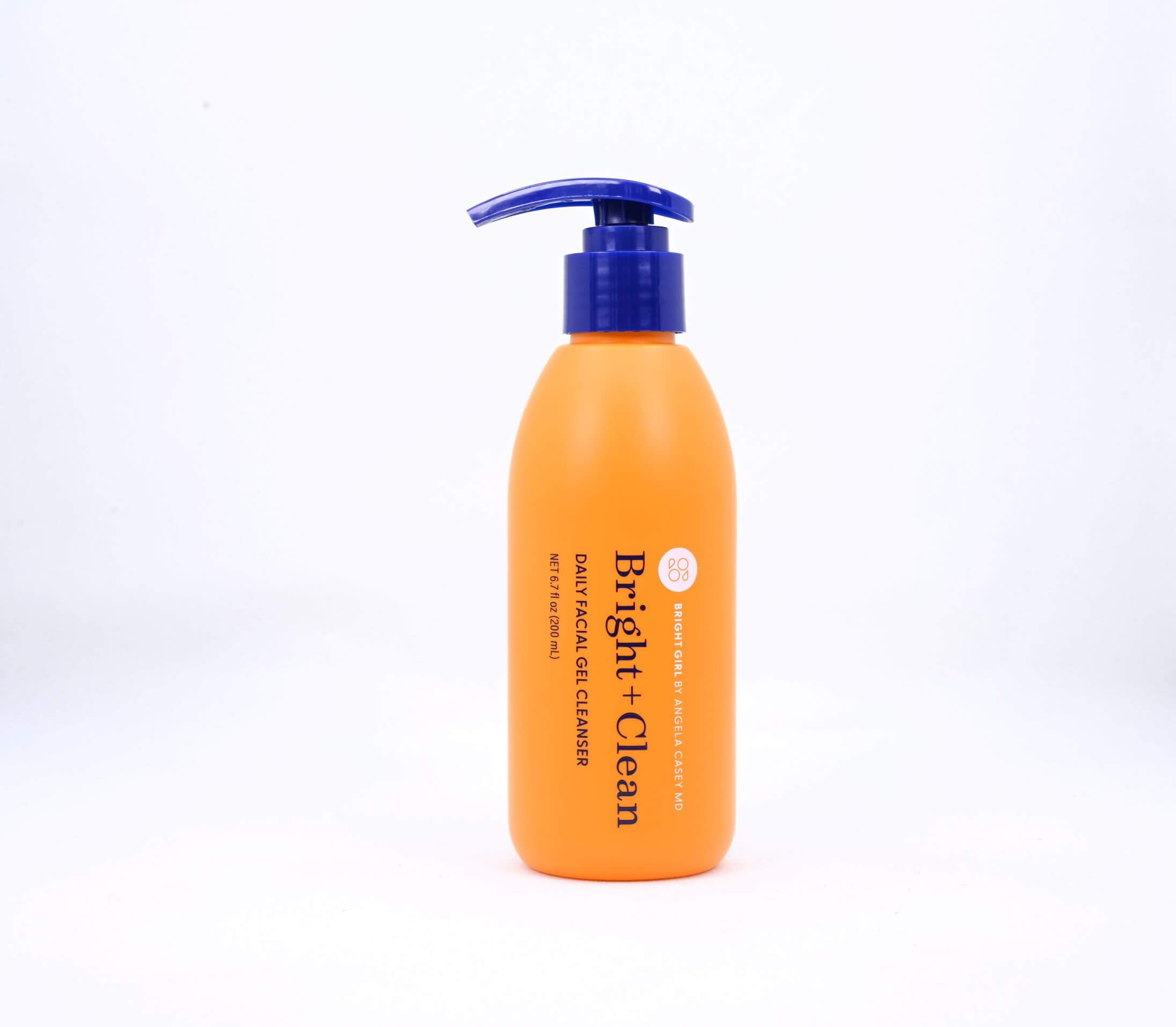
Bright Girl Gel Facial Cleanser
Bright+Clean Gel Facial Cleanser is a pH-balanced cleanser (pH= 5.5-6.5) is designed to work with your skin’s barrier while washing away dirt, sweat, and make-up. Bright+Clean cleanses and nourishes with a subtle natural fragrance that is designed to positively reinforce consistent use. 6.7 FL OZ (200 ML)
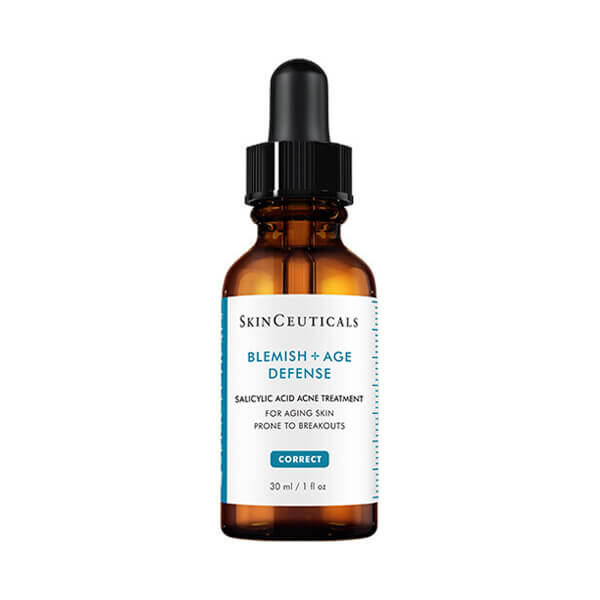
SkinCeuticals Blemish + Age Defense
Blemish + Age Defense is a targeted, oil-free approach for aging skin prone to breakouts. This first-to-market acid blend combines 2% dioic acid with an optimal alpha- and beta-hydroxy acid formulation to reduce the formation of acne and clogged pores. 1 fl oz / 30 mL
